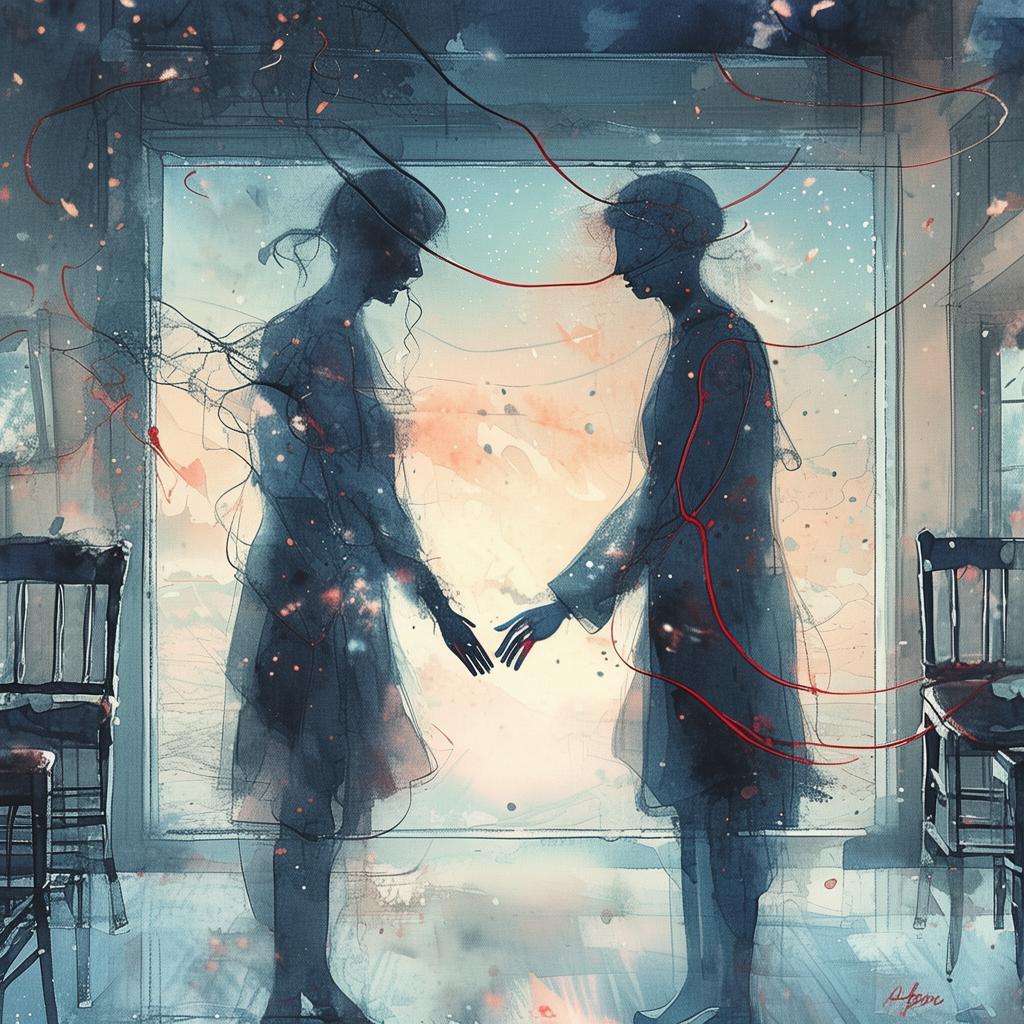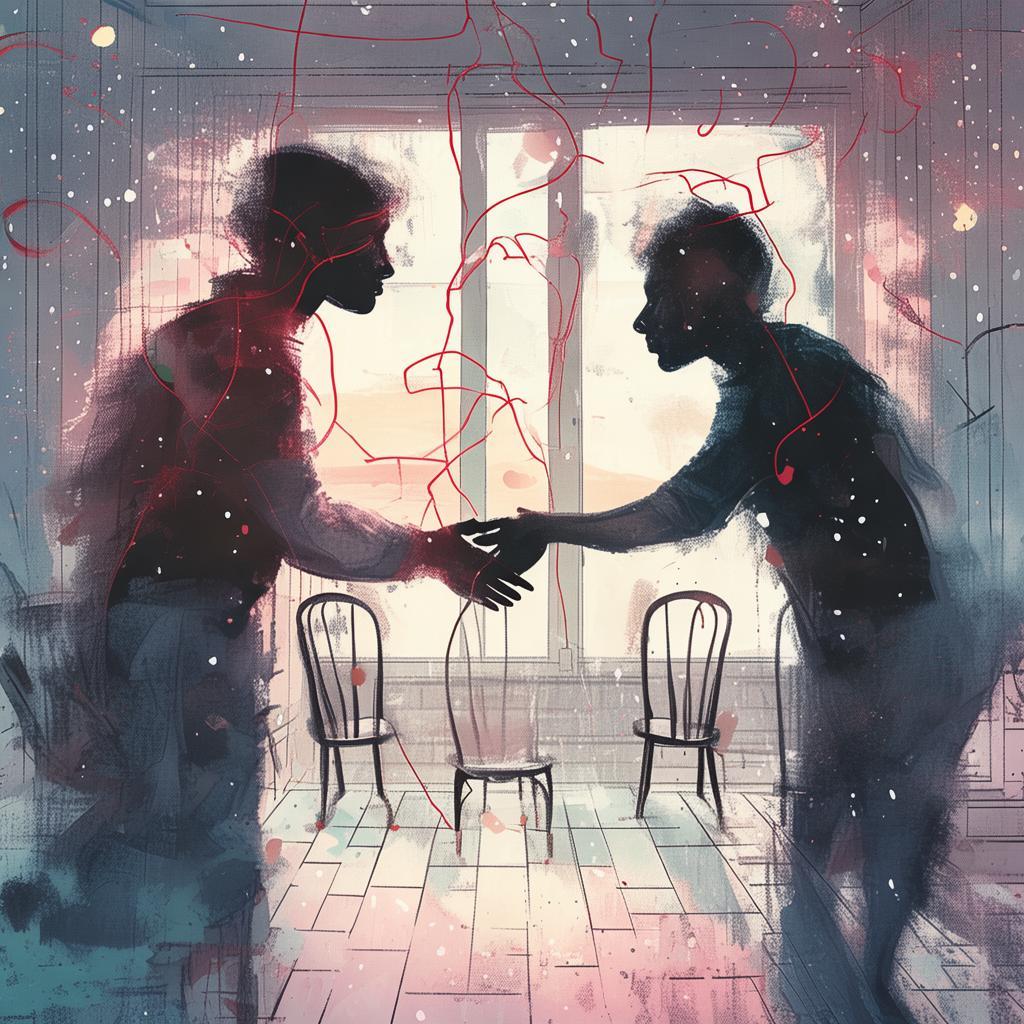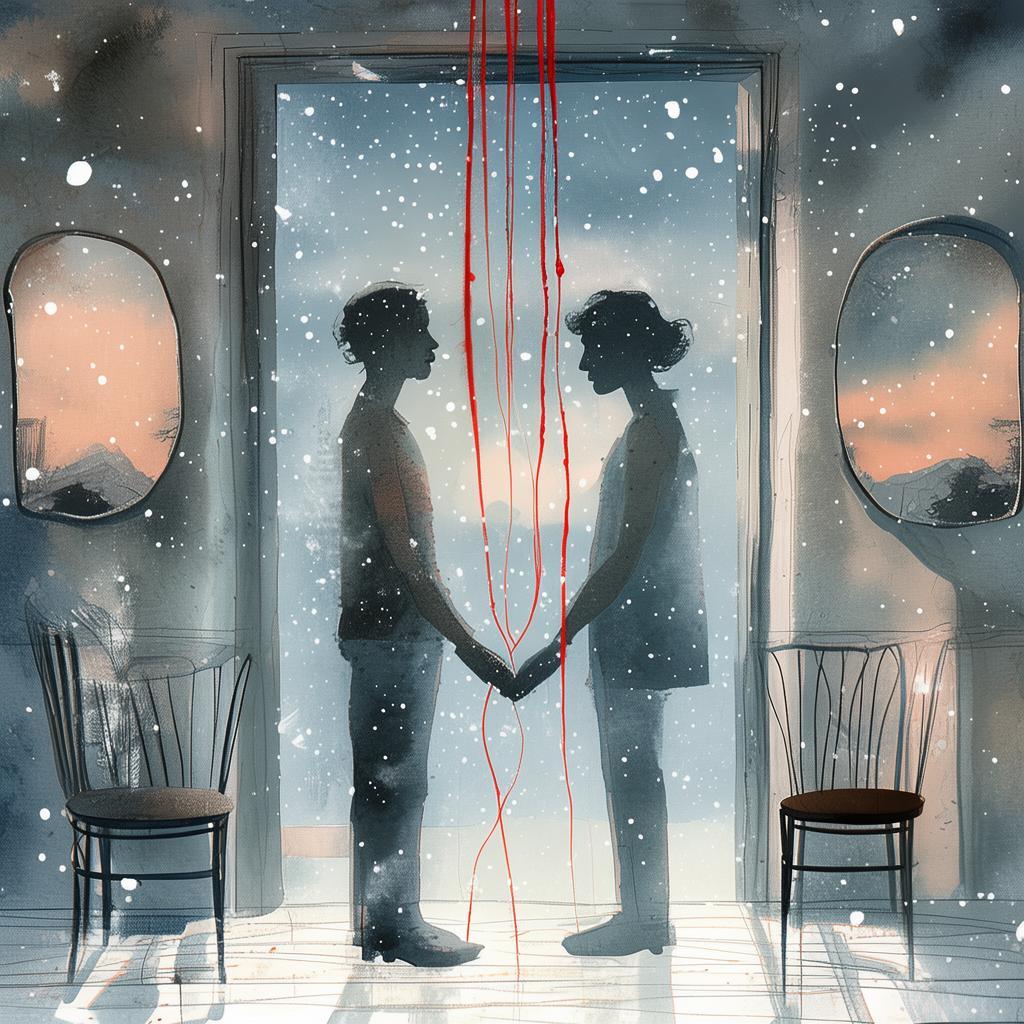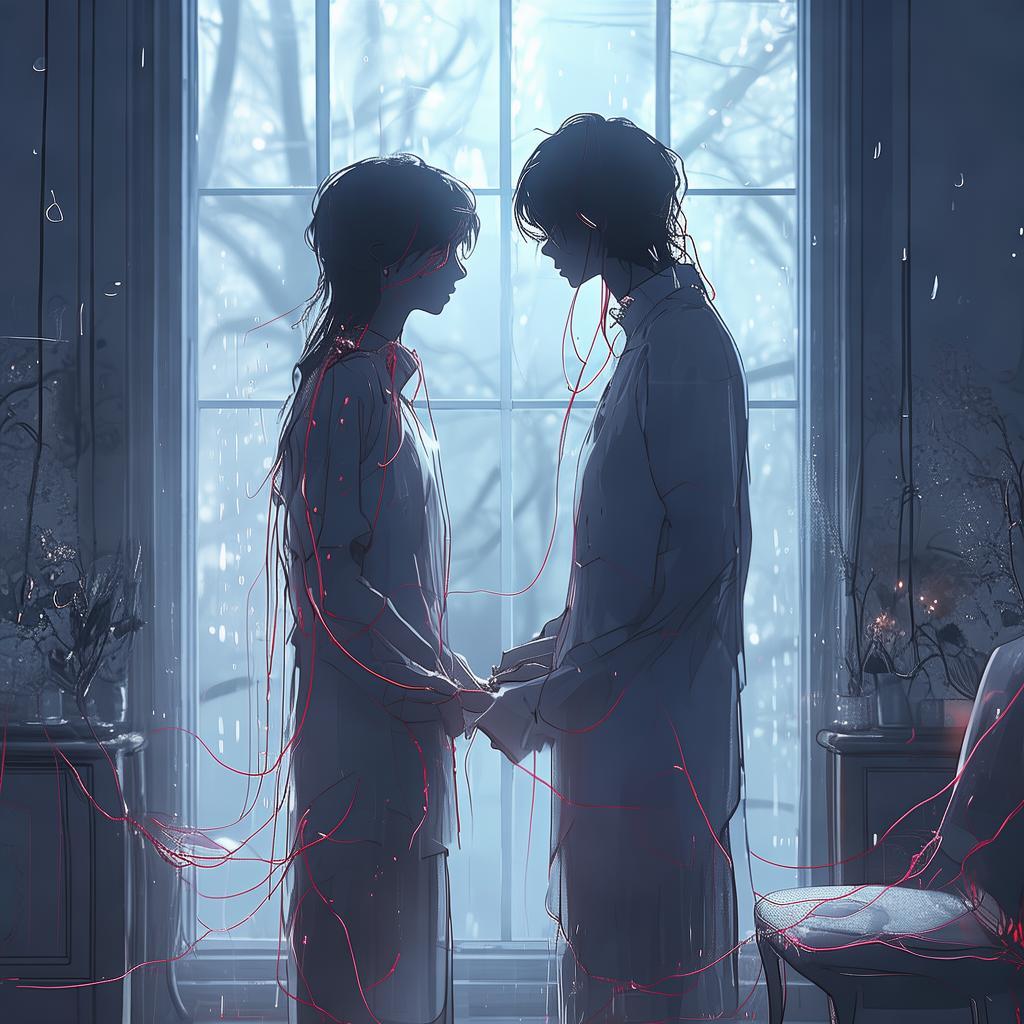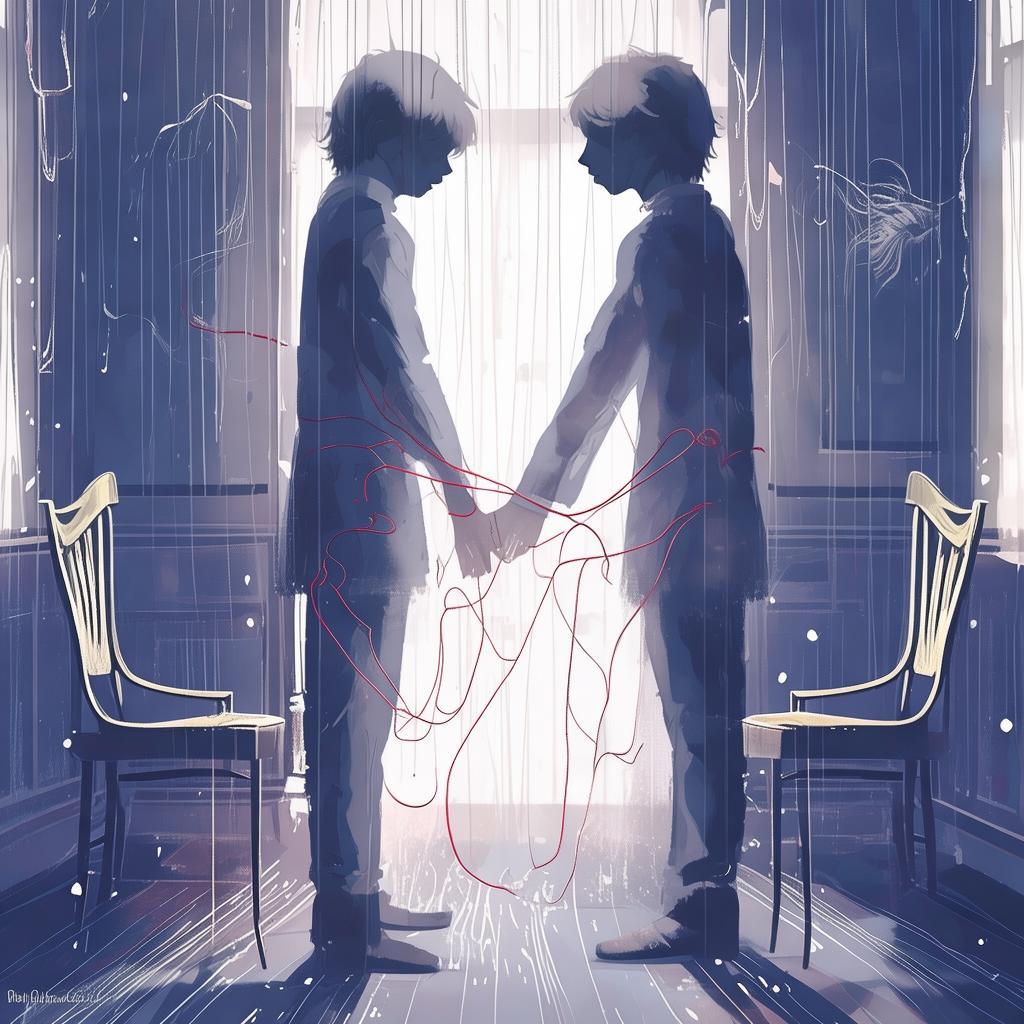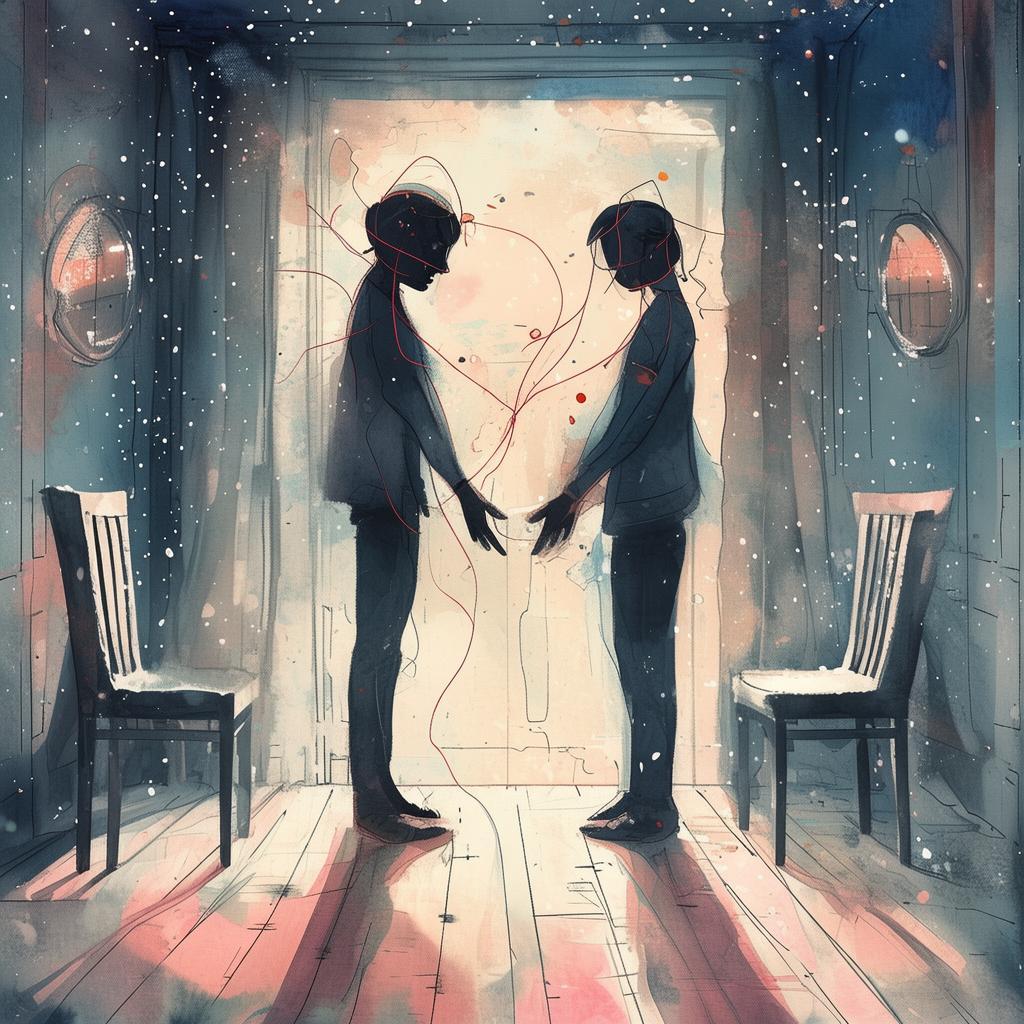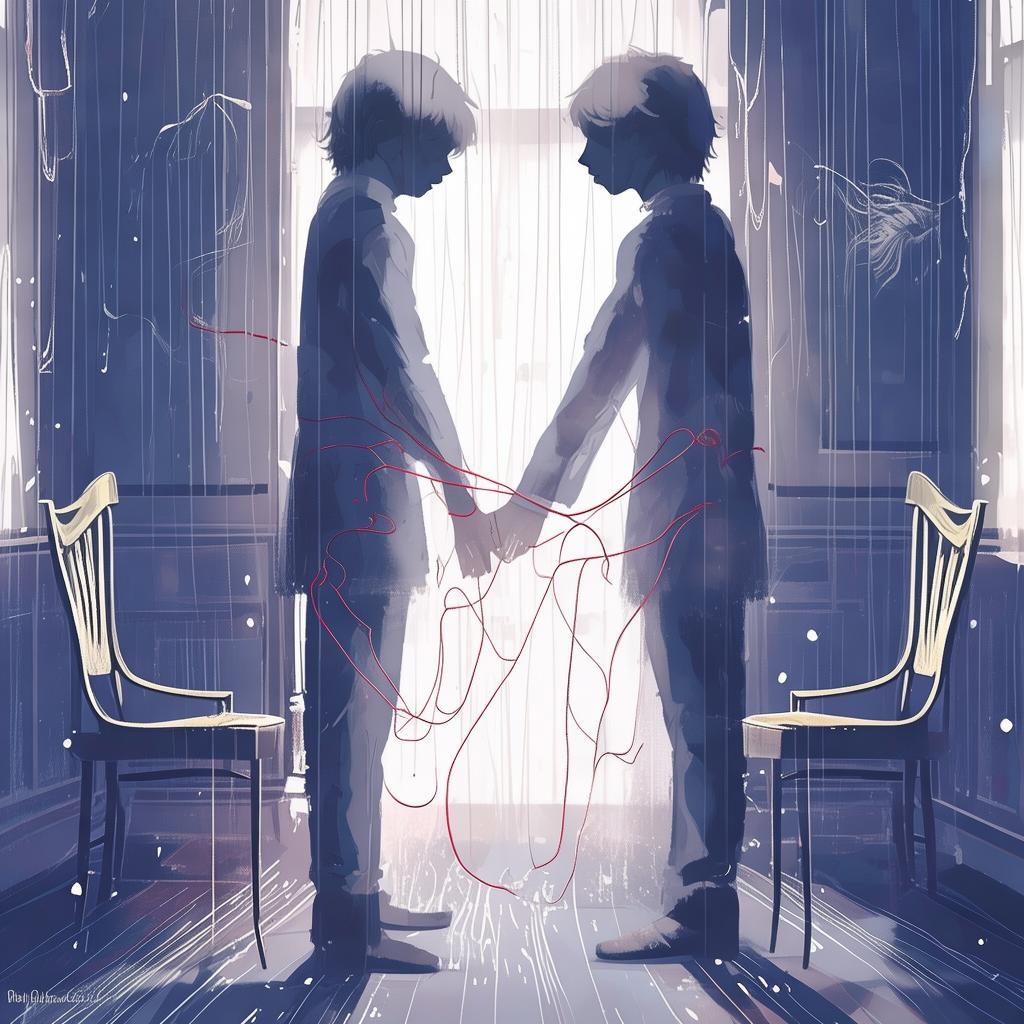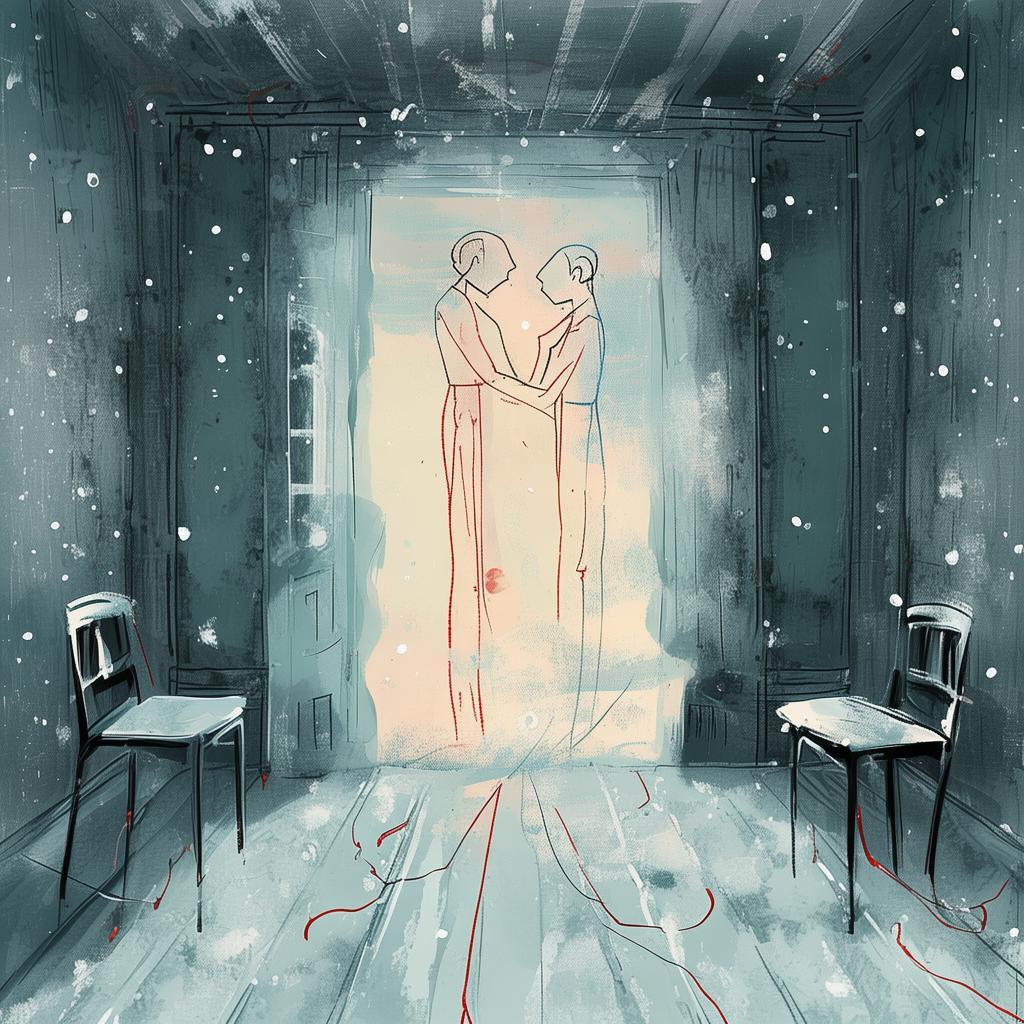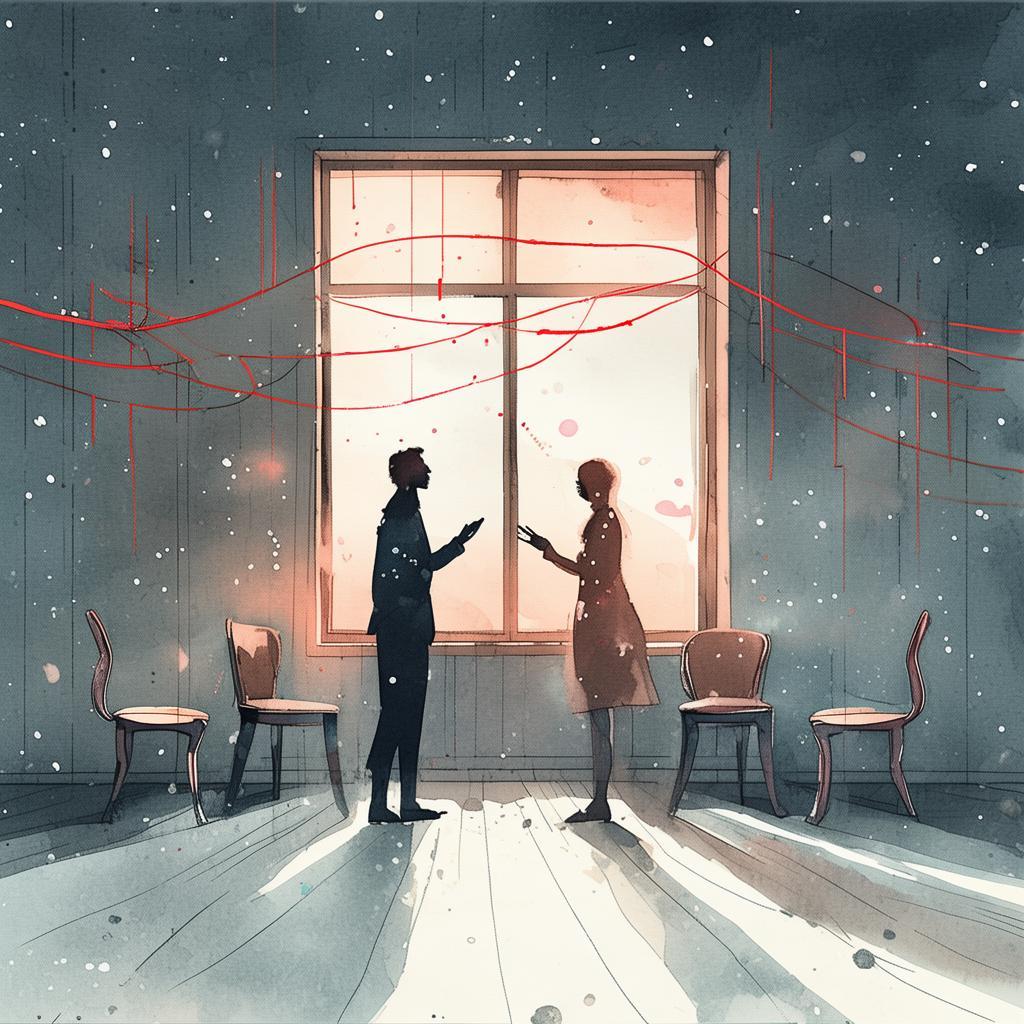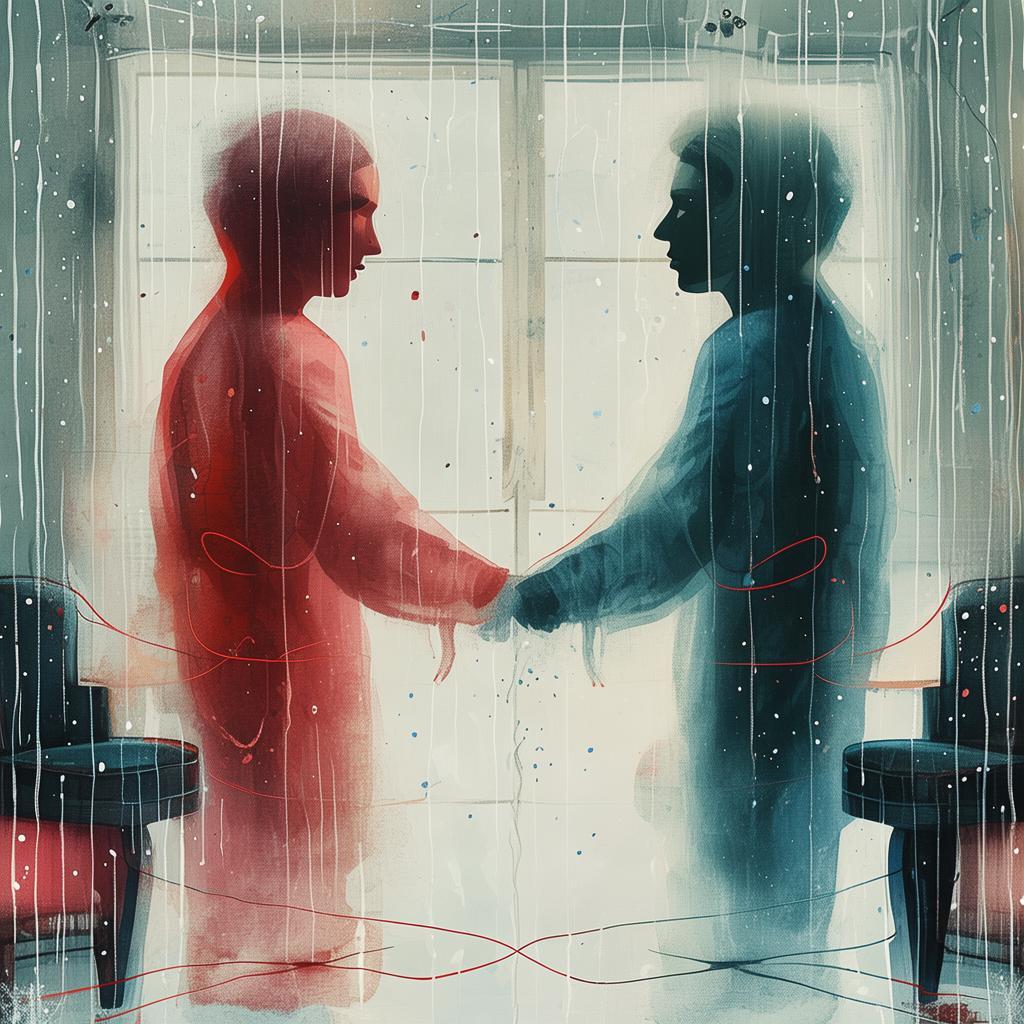The Silent Symphony of Shadows
In the waning days of the Qing Dynasty, the city of Beijing was a tapestry of life, each thread a whisper of the past and a promise of the future. Yet, in the heart of this bustling metropolis, there was a place where whispers turned into silence, a place where music was forbidden—a place where the shadows danced with the silent symphony.
Liu Jin, a young and ambitious musician, was known for his unparalleled skill in the guzheng, a traditional Chinese zither. His fingers danced over the strings with such precision that they seemed to weave a tapestry of sound. Yet, his passion for music was a secret he kept close to his chest, for in the eyes of the empire, music was a luxury for the elite, and the common folk were forbidden to indulge in its pleasures.
By contrast, there was Qian, a mysterious and enigmatic man who owned a small, secluded tea house on the outskirts of the city. His presence was as enigmatic as the tea he served, and his fingers, when they played the guzheng, seemed to carry the weight of the world. Qian was a master of the guzheng, but his music was a silent symphony, a testament to the pain and sorrow he had endured.
The two men crossed paths one fateful evening when Liu Jin, in a moment of desperation, sought refuge in Qian's tea house. It was there, amidst the scent of aged tea leaves and the flickering shadows of the lanterns, that their destinies intertwined.
"Music is life," Liu Jin whispered, his voice barely above a whisper. "It is the essence of who we are, and to be denied it is to be denied our very souls."
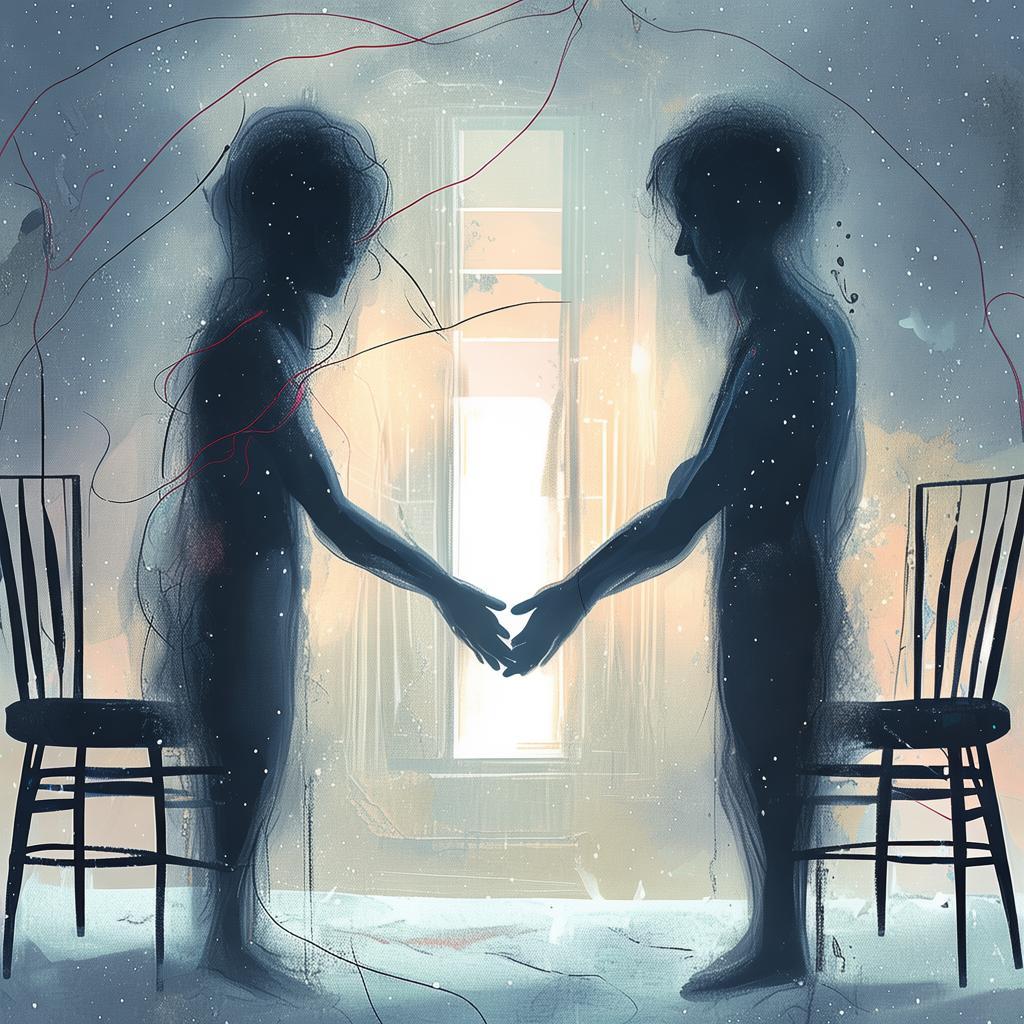
Qian looked at him, his eyes reflecting a world of pain and loss. "Then you must understand the cost of your passion," he replied, his voice as deep as the night. "In this world, music is power, and power is dangerous."
Despite the risks, their bond grew stronger with each passing day. They shared their silent symphonies, their fingers moving in harmony, their hearts beating in unison. But the shadows that danced around them were never far away, and the silence that surrounded them was a dangerous silence, a silence that could crush their love.
One night, as they played together, the sound of their guzhengs carried through the tea house, reaching the ears of a high-ranking official who had long sought to silence music and its practitioners. The official's men appeared at the door, their faces stern and their eyes filled with malice.
"Your music is a threat to the empire," the official barked. "You will stop playing or face the consequences."
Liu Jin and Qian were thrown into a web of danger, their love tested by the forces that sought to destroy them. They were forced to flee, their lives in constant peril as they tried to find a way to continue their silent symphony without drawing the attention of their enemies.
As they ran, Liu Jin turned to Qian, his eyes filled with fear and determination. "We must continue," he said. "For our love, for our music, and for the freedom of the common folk."
Qian nodded, his eyes never leaving Liu Jin's. "Then we will fight until the end," he replied, his voice filled with resolve.
Their journey took them to the edges of the empire, where the forbidden was allowed to flourish. They found a small community of musicians who shared their passion and who were willing to stand with them against the forces that sought to silence them.
Together, they formed a silent symphony, their music a testament to the power of love and the resilience of the human spirit. They played for the common folk, their music a beacon of hope in a world shrouded in darkness.
In the end, the official's men found them, but they were not alone. The community of musicians joined them, their guzhengs and other instruments creating a cacophony that drowned out the voices of their enemies.
The official looked on, his face a mix of shock and awe. "You have won," he said, his voice trembling. "Your music has freed the people."
Liu Jin and Qian looked at each other, their eyes filled with tears of joy and relief. They had fought for their love, for their music, and for the freedom of the common folk, and they had won.
As they played their final piece, the community joined in, their voices rising in harmony, their instruments creating a symphony that echoed through the night. It was a symphony of hope, a symphony of love, and a symphony of freedom.
And so, in the heart of the forbidden, a silent symphony was born, a symphony that would never be silenced.
✨ Original Statement ✨
All articles published on this website (including but not limited to text, images, videos, and other content) are original or authorized for reposting and are protected by relevant laws. Without the explicit written permission of this website, no individual or organization may copy, modify, repost, or use the content for commercial purposes.
If you need to quote or cooperate, please contact this site for authorization. We reserve the right to pursue legal responsibility for any unauthorized use.
Hereby declared.
